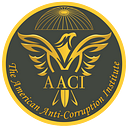Anti-Corruption Corporate Culture: Sustainable Business Reputation
Technical staff
November 7, 2023
Introduction
In today’s ever-evolving business landscape, one thing remains constant: the necessity of upholding ethical values and integrity. Corruption poses a significant threat to any organization, but it can be combated through the establishment of an anti-corruption corporate culture. This blog post will make the case that instilling anti-corruption practices into an organization’s DNA is essential to lower corruption risks, enhance internal control, governance, and risk management, and ultimately contribute to a more sustainable business reputation. We will emphasize the role of leadership in engaging all employees, provide insights into effective anti-corruption learning programs, and highlight the direct link between fighting corruption and higher net income. Lastly, we will underscore the importance of maintaining vigilance in today’s business environment and the adoption of whistleblowing policies to safeguard an organization’s reputation.
Instilling Anti-Corruption Practices into the Corporate Culture
Corruption can occur anywhere — it can permeate any organization, regardless of its nature, complexity, or management style. To effectively combat it, leadership must integrate anti-corruption practices into the organization’s corporate culture. This means going beyond only policies and compliance checks and fostering a mindset that resists corrupt practices.
To achieve this, leaders must not only set an example but also promote a culture where integrity is valued and rewarded. By doing so, organizations can lower corruption risks to acceptable lows, which in turn strengthens internal control, governance, and risk management.
Engaging All Organizational Employees
Fighting corruption is not the sole responsibility of a few; it demands engagement from every employee, including board members and executive management. A crucial step in this direction is the implementation of comprehensive anti-corruption learning programs. These programs should be designed to educate and sensitize employees about the dangers of corruption while encouraging ethical behavior.
Engaging all employees is about more than just mandatory training — it’s about institutionalizing anti-corruption as a core element of the organization’s values and practices. When all employees are committed to the cause, the organization is better equipped to prevent, detect, and respond to corrupt activities effectively.
A Higher and Sustainable Bottom Line
Some may question how fighting corruption correlates with financial success. The answer is simple: an organization’s commitment to ethical practices leads to a higher and more sustainable bottom line — its net income. Corruption can lead to significant financial losses due to fraud, embezzlement, fines, and reputational damage. By eliminating these risks, an organization can safeguard its financial health and reputation.
Additionally, a company with a reputation for integrity is more likely to attract customers, partners, and investors who share these values. This positive image can lead to increased profitability and longevity in the market.
Maintaining Vigilance and Implementing Whistleblowing Policies
In today’s fast-paced business environment, staying ahead of potential corruption risks is essential. The daily headlines are filled with stories of organizations facing financial scandals and reputational damage due to corruption. Therefore, leadership should maintain proper vigilance about their environment and business practices.
One effective way to do so is by establishing and implementing a whistleblowing policy. This policy should be aligned with international standards, such as the Standard on Fighting Corruption 280: Whistleblowing. By providing a safe and anonymous channel for employees to report unethical behavior, organizations can quickly address and mitigate potential corruption risks.
Conclusion
In conclusion, an anti-corruption corporate culture is not an optional extra but a necessity for any organization looking to protect its reputation and financial health. Leadership’s role in instilling these practices, engaging all employees, and maintaining vigilance is paramount. The tangible benefits of lower corruption risks, enhanced governance, and a sustainable bottom line underscore the value of this investment. To shield your organization from scandalous financial events, the adoption of comprehensive whistleblowing policies is a critical step. By committing to these principles, businesses can build a reputation founded on integrity, setting the stage for long-term success in a competitive and challenging world.
References
1. Standard on Fighting Corruption 280: Whistleblowing, The American Anti-Corruption Institute (AACI), 2023, Tempe, AZ. Accessed on November 6, 2023, https://www.theaaci.net/Standard-on-Fighting-Corruption-280-Whistleblowing/
Originally published at https://blog.theaaci.com on November 7, 2023.
